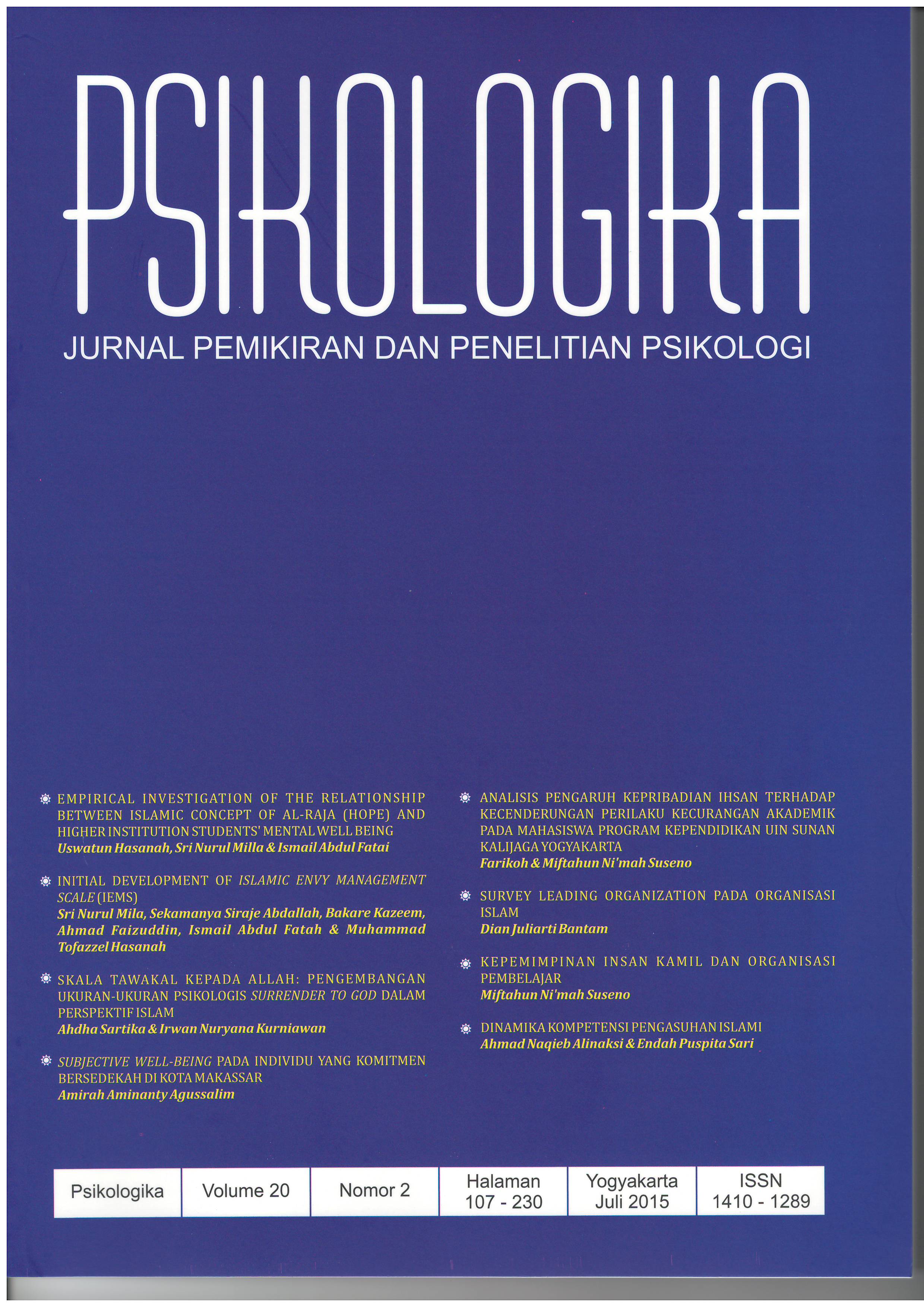Main Article Content
Abstract
This preliminary study aimed to explore the psychometric properties ofSkala Tawakal kepada Allah as psychological measures of Surrender to God in the Islamic perspective. This study involved 224 respondents, 54% female, average age 37years, 81.5% were married, and the average monthly income of IDft 3,000,000.00. Skala Tawakal kepada Allah, together with Surrender To God Scale (Wong, McDonald, and Gorsuch, 2000), Satisfaction with Life Scale (Diener, Emmons, Larsen, and Griffin, 1985), Scale of Positive and Negative Experience (Diener, Wirtz, Tow, Kim-Prieto, Oishi, and Biswas-Diener, 2009) was administered to 224 respondents to evaluate the factor structure, reliability, and validity of the Skala Tawakal kepada Allah. The results of exploratory factor analysis, internal consistency reliability analysis, and correlational analysis with criterion variable supported reliability, structural and concurrent validity of Skala Tawakal kepada Allah has initial psychometric evidence of valid and reliable as a measure of psychological Surrender to God. The findings, limitations, and research recommendations regarding Skala Tawakal kepada Allah are briefly discussed.
Keyword; Skala Tawakal kepada Allah, Surrender to God,Psychometric properties.
Article Details
Authors who publish with this journal agree to the following terms:
- Authors retain copyright and grant the journal right of first publication with the work simultaneously licensed under a Creative Commons Attribution-ShareAlike 4.0 International License that allows others to share the work with an acknowledgment of the work's authorship and initial publication in this journal.
- Authors are able to enter into separate, additional contractual arrangements for the non-exclusive distribution of the journal's published version of the work (e.g., post it to an institutional repository or publish it in a book), with an acknowledgment of its initial publication in this journal.
- Authors are permitted and encouraged to post their work online (e.g., in institutional repositories or on their website) prior to and during the submission process, as it can lead to productive exchanges, as well as earlier and greater citation of published work (See The Effect of Open Access).




